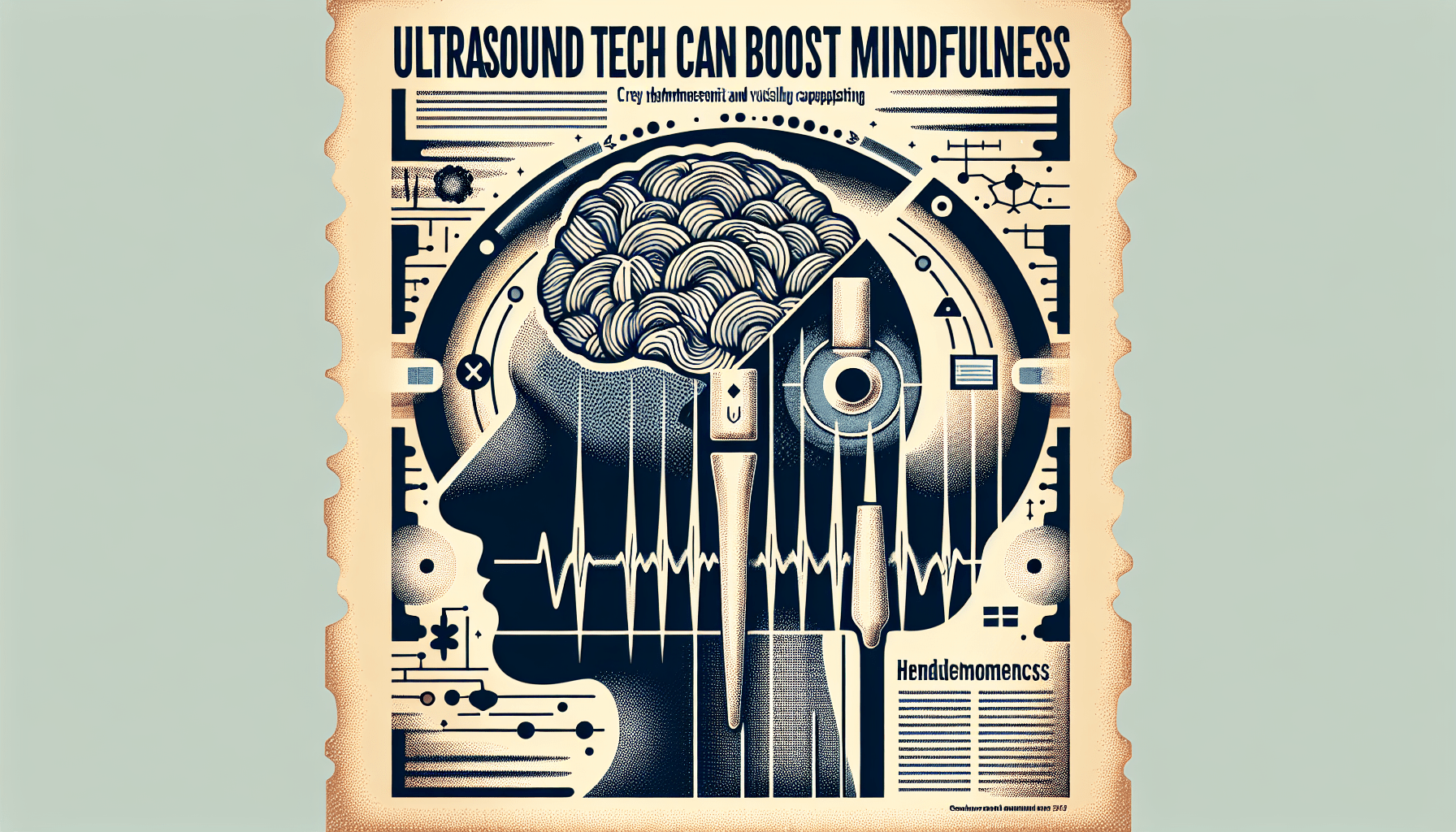Have you ever found yourself overwhelmed by the demands of your role in healthcare? Do you feel that the emotional and mental toll is starting to affect your overall well-being? You aren’t alone. Many healthcare professionals experience these challenges due to the high-stress environment in which they work. This is precisely where mindfulness comes in as a powerful tool for coping and thriving.
Introduction
Mindfulness, the practice of being fully present and engaged in the moment, is more than a buzzword. For healthcare professionals, it’s a crucial strategy for maintaining both mental and physical health. As you navigate the complexities of patient care, you might find that incorporating mindfulness can significantly impact your well-being, job performance, and overall satisfaction. It’s not just about doing your job better; it’s about being able to sustain the passion and care you bring to your work every day.
What is Mindfulness?
Mindfulness involves paying attention to the present moment without judgment. Instead of being caught up in worries about the future or regrets about the past, you focus your attention on what is happening right now. This practice can be as simple as taking a few deep breaths before entering a patient’s room or as structured as a daily meditation practice.
Key Components of Mindfulness
- Awareness: Being consciously aware of your thoughts, feelings, and sensations.
- Acceptance: Acknowledge your experiences without judging them good or bad.
- Present Focus: Direct your attention to the present moment.
By mastering these components, you can cultivate a mindset that is less reactive and more resilient to stress.

Why is Mindfulness Important for Healthcare Professionals?
Enhanced Patient Care
When you are fully present, you can offer better care. Mindfulness allows you to listen more deeply to your patients, understand their needs, and respond more effectively. This not only benefits the patient but also enhances your sense of job satisfaction.
Stress Reduction
Healthcare settings are inherently stressful. Mindlessness—being caught up in thoughts and worries—can exacerbate this stress. Practicing mindfulness can help reduce stress by fostering a calmer, more centered mental state.
Emotional Balance
Dealing with suffering and illness day in and day out can lead to emotional burnout. Mindfulness helps you manage your emotions, reducing the likelihood of burnout. It allows you to maintain empathy and compassion without becoming overwhelmed.
Scientific Backing: How Mindfulness Works
Psychological Benefits
Multiple studies have shown that mindfulness can reduce symptoms of anxiety and depression. A study published in the Journal of the American Medical Association found that mindfulness meditation programs can improve psychological well-being in various populations, including healthcare providers.
Physical Benefits
Mindfulness isn’t solely about mental health; it has physical benefits too. Research has shown that mindfulness can lower blood pressure, reduce chronic pain, and improve sleep quality.
Improved Cognitive Function
Mindfulness enhances cognitive functions such as attention, memory, and decision-making skills. These are crucial attributes in the healthcare field, where quick and accurate decision-making can save lives.

Practical Mindfulness Techniques for Healthcare Professionals
Breathing Exercises
Simple breathing exercises can be a great way to start incorporating mindfulness into your daily routine. Try a basic technique like the 4-7-8 breath: inhale for four seconds, hold for seven, and exhale for eight.
Body Scan
A body scan involves mentally scanning your body for areas of tension. Start at your toes and slowly work your way up to your head, consciously relaxing each part of your body.
Mindful Listening
When talking with patients or colleagues, make an effort to truly listen. Avoid formulating a response while they are speaking. Instead, focus entirely on their words and the emotions behind them.
Short Meditations
Even a few minutes of meditation can be beneficial. Apps like Headspace or Calm offer guided meditations specifically designed for busy professionals.
Steps to Integrate Mindfulness into Your Workday
Morning Routine
Start your day with a few minutes of mindfulness meditation. This sets a positive tone for the day ahead.
Mindful Moments
Throughout your day, take short breaks to focus on your breath or do a quick body scan. These moments can be as brief as 30 seconds but can make a significant difference in your stress levels.
End-of-Day Reflection
Before you go to bed, spend a few minutes reflecting on your day. Consider what went well, what didn’t, and how you can improve tomorrow. This practice can help you leave work-related stress at work.

Overcoming Common Barriers to Practicing Mindfulness
Time Constraints
One of the most common barriers to mindfulness is the belief that there isn’t enough time. However, mindfulness doesn’t have to take up much of your day. Even just a few minutes can be beneficial.
Skepticism
Some may be skeptical about the benefits of mindfulness. It’s important to approach it with an open mind. Remember, mindfulness is backed by extensive research.
Initial Discomfort
It’s normal to feel awkward or uncomfortable when you first start practicing mindfulness. With time and consistency, it will become more natural.
Tips for Sustaining a Mindfulness Practice
Consistency is key. Make mindfulness a regular part of your routine rather than something you only turn to in moments of crisis.
Find a Community
Join a mindfulness group at your workplace or online. Sharing your experiences and challenges can provide additional motivation and support.
Continued Learning
Consider taking courses or attending workshops on mindfulness. This can deepen your practice and integrate new techniques into your routine.
Personalize Your Practice
Tailor your mindfulness practice to fit your lifestyle and preferences. Whether it’s yoga, meditation, or simply mindful breathing, find what works best for you.
Real-life Examples
Case Study: Dr. Julia, A Surgeon
Dr. Julia, a busy surgeon, was experiencing high levels of stress and recurring burnout. She decided to implement mindfulness techniques into her daily routine. By practicing mindful breathing before surgeries and doing a brief body scan after shift, she noticed a significant reduction in her stress levels and an improvement in her overall well-being.
Case Study: Nurse John
John, a nurse in the ICU, found it challenging to manage the emotional weight of his job. He started attending mindfulness workshops and incorporated short meditations during his breaks. Over time, his emotional balance improved, making him more resilient to the stressful environment.
Long-Term Benefits of Mindfulness in Healthcare
Reduced Burnout Rates
Sustained practice of mindfulness can contribute to lower rates of burnout among healthcare professionals.
Improved Patient Outcomes
When healthcare professionals are less stressed and more present, patient care improves.
Increased Job Satisfaction
Mindfulness can enhance your job satisfaction by making you more resilient to the pressures of the healthcare environment.
Conclusion
Mindfulness is not a magic bullet but rather a practical tool that can significantly enhance your life as a healthcare professional. By reducing stress, improving emotional balance, and enhancing patient care, mindfulness is an invaluable asset. It helps you show up as your best self, not just for your patients but also for your personal well-being. Give mindfulness the chance to make a lasting change in your life and career.
Why Mindfulness Matters for Healthcare Professionals
Have you ever found yourself overwhelmed by the demands of your role in healthcare? Do you feel that the emotional and mental toll is starting to affect your overall well-being? You aren’t alone. Many healthcare professionals experience these challenges due to the high-stress environment in which they work. This is precisely where mindfulness comes in as a powerful tool for coping and thriving.
Introduction
Mindfulness, the practice of being fully present and engaged in the moment, is more than a buzzword. For healthcare professionals, it’s a crucial strategy for maintaining both mental and physical health. As you navigate the complexities of patient care, you might find that incorporating mindfulness can significantly impact your well-being, job performance, and overall satisfaction. It’s not just about doing your job better; it’s about being able to sustain the passion and care you bring to your work every day.
What is Mindfulness?
Mindfulness involves paying attention to the present moment without judgment. Instead of being caught up in worries about the future or regrets about the past, you focus your attention on what is happening right now. This practice can be as simple as taking a few deep breaths before entering a patient’s room or as structured as a daily meditation practice.
Key Components of Mindfulness
- Awareness: Being consciously aware of your thoughts, feelings, and sensations.
- Acceptance: Acknowledge your experiences without judging them good or bad.
- Present Focus: Direct your attention to the present moment.
By mastering these components, you can cultivate a mindset that is less reactive and more resilient to stress.
Why is Mindfulness Important for Healthcare Professionals?
Enhanced Patient Care
When you are fully present, you can offer better care. Mindfulness allows you to listen more deeply to your patients, understand their needs, and respond more effectively. This not only benefits the patient but also enhances your sense of job satisfaction.
Stress Reduction
Healthcare settings are inherently stressful. Mindlessness—being caught up in thoughts and worries—can exacerbate this stress. Practicing mindfulness can help reduce stress by fostering a calmer, more centered mental state.
Emotional Balance
Dealing with suffering and illness day in and day out can lead to emotional burnout. Mindfulness helps you manage your emotions, reducing the likelihood of burnout. It allows you to maintain empathy and compassion without becoming overwhelmed.
Scientific Backing: How Mindfulness Works
Psychological Benefits
Multiple studies have shown that mindfulness can reduce symptoms of anxiety and depression. A study published in the Journal of the American Medical Association found that mindfulness meditation programs can improve psychological well-being in various populations, including healthcare providers.
Physical Benefits
Mindfulness isn’t solely about mental health; it has physical benefits too. Research has shown that mindfulness can lower blood pressure, reduce chronic pain, and improve sleep quality.
Improved Cognitive Function
Mindfulness enhances cognitive functions such as attention, memory, and decision-making skills. These are crucial attributes in the healthcare field, where quick and accurate decision-making can save lives.
Practical Mindfulness Techniques for Healthcare Professionals
Breathing Exercises
Simple breathing exercises can be a great way to start incorporating mindfulness into your daily routine. Try a basic technique like the 4-7-8 breath: inhale for four seconds, hold for seven, and exhale for eight.
Body Scan
A body scan involves mentally scanning your body for areas of tension. Start at your toes and slowly work your way up to your head, consciously relaxing each part of your body.
Mindful Listening
When talking with patients or colleagues, make an effort to truly listen. Avoid formulating a response while they are speaking. Instead, focus entirely on their words and the emotions behind them.
Short Meditations
Even a few minutes of meditation can be beneficial. Apps like Headspace or Calm offer guided meditations specifically designed for busy professionals.
Steps to Integrate Mindfulness into Your Workday
Morning Routine
Start your day with a few minutes of mindfulness meditation. This sets a positive tone for the day ahead.
Mindful Moments
Throughout your day, take short breaks to focus on your breath or do a quick body scan. These moments can be as brief as 30 seconds but can make a significant difference in your stress levels.
End-of-Day Reflection
Before you go to bed, spend a few minutes reflecting on your day. Consider what went well, what didn’t, and how you can improve tomorrow. This practice can help you leave work-related stress at work.
Overcoming Common Barriers to Practicing Mindfulness
Time Constraints
One of the most common barriers to mindfulness is the belief that there isn’t enough time. However, mindfulness doesn’t have to take up much of your day. Even just a few minutes can be beneficial.
Skepticism
Some may be skeptical about the benefits of mindfulness. It’s important to approach it with an open mind. Remember, mindfulness is backed by extensive research.
Initial Discomfort
It’s normal to feel awkward or uncomfortable when you first start practicing mindfulness. With time and consistency, it will become more natural.
Tips for Sustaining a Mindfulness Practice
Consistency is key. Make mindfulness a regular part of your routine rather than something you only turn to in moments of crisis.
Find a Community
Join a mindfulness group at your workplace or online. Sharing your experiences and challenges can provide additional motivation and support.
Continued Learning
Consider taking courses or attending workshops on mindfulness. This can deepen your practice and integrate new techniques into your routine.
Personalize Your Practice
Tailor your mindfulness practice to fit your lifestyle and preferences. Whether it’s yoga, meditation, or simply mindful breathing, find what works best for you.
Real-life Examples
Case Study: Dr. Julia, A Surgeon
Dr. Julia, a busy surgeon, was experiencing high levels of stress and recurring burnout. She decided to implement mindfulness techniques into her daily routine. By practicing mindful breathing before surgeries and doing a brief body scan after shift, she noticed a significant reduction in her stress levels and an improvement in her overall well-being.
Case Study: Nurse John
John, a nurse in the ICU, found it challenging to manage the emotional weight of his job. He started attending mindfulness workshops and incorporated short meditations during his breaks. Over time, his emotional balance improved, making him more resilient to the stressful environment.
Long-Term Benefits of Mindfulness in Healthcare
Reduced Burnout Rates
Sustained practice of mindfulness can contribute to lower rates of burnout among healthcare professionals.
Improved Patient Outcomes
When healthcare professionals are less stressed and more present, patient care improves.
Increased Job Satisfaction
Mindfulness can enhance your job satisfaction by making you more resilient to the pressures of the healthcare environment.
Conclusion
Mindfulness is not a magic bullet but rather a practical tool that can significantly enhance your life as a healthcare professional. By reducing stress, improving emotional balance, and enhancing patient care, mindfulness is an invaluable asset. It helps you show up as your best self, not just for your patients but also for your personal well-being. Give mindfulness the chance to make a lasting change in your life and career.





